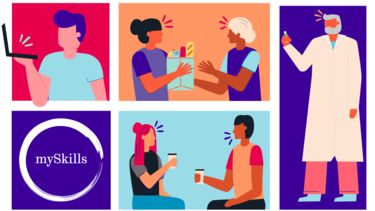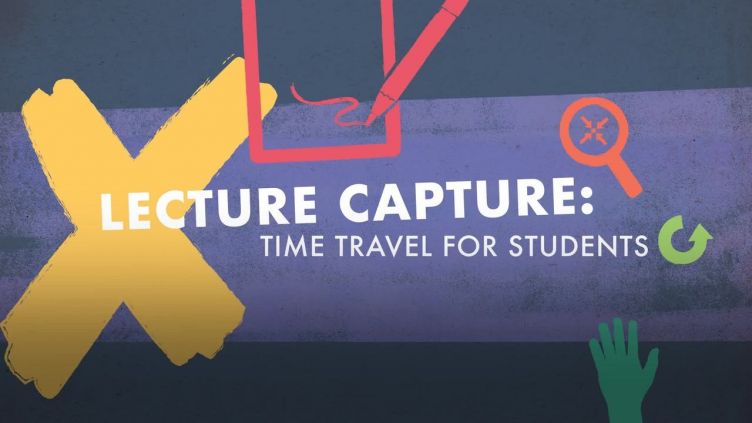How to make the most of lecture capture
Guidance on how to use lecture capture effectively to support your academic work.
How to use lecture capture
Most of your scheduled lectures will be recorded using Encore, the University of Sheffield lecture capture tool. Using the lecture capture service to revisit content from lectures is a valuable way to reinforce your learning and prepare for exams and other assessments.
Lecture capture recordings are no substitute for the face-to-face lecture experience and should be used as a resource to support in-person attendance. They can be a useful way to access information that you may have missed, go over challenging areas again or review your lecture notes.
For information on how to use the Encore Player to access and view recordings, please see the following guidance:
Visit the Accessing and viewing your Encore recordings page
Tips from Students
The following tips and suggestions have been compiled by students as a way to make the most of lecture capture videos available on your course as part of your day-to-day study:
Attend lectures
- Research shows that students who attend more timetabled sessions tend to get better grades.
- There are social benefits to attending lectures. You become part of the community.
- It is best to use lecture recordings as a supplement to attendance. Use recordings to revisit bits you don't understand rather than using them as a substitute.
Take notes
- Note-taking helps you learn but it also gives you material to review at a later date.
- The best way to take notes is to summarise or paraphrase what the lecturer is saying, rather than writing down word-for-word. Good note-taking can be difficult but you can use systems like the Cornell Method to help you structure your notes (see more on How to Make Notes here).
- Focus on understanding the lecture, writing down the key information.
- Don't be anxious about writing down every word, if you miss something you can revisit the recording.
Be specific
- Before you rewatch the lecture try to recall as much as you can.
- Check your notes and identify sections you missed or didn't understand.
- Rewatch specific sections of the lecture related to these problem areas, rather than watching the full recording.
- Revisit the recording within 2-3 days. Don’t rewatch immediately after the lecture, or wait too long.
- Use the recordings to add detail to your notes, but don't forget to summarise and paraphrase in your own words.
Catch up
- If you can't attend a lecture for valid reasons, watch the recording in full within one week.
- You learn more effectively when your learning sessions are spread out so it's good to keep up-to-date with the lecture content each week.
- There is evidence you won't learn as much if you watch the recording at high speeds, so watch it at normal speed once and take notes as if you were in the live lecture.
- Once you've watched the recording in full, then go back and revisit bits you don't understand.
- Make sure you spend the same amount of "time-on-task" as a student who attended the live lecture.
Ask for help
- Even though there's a recording you can still ask for help if you don't understand parts of the lecture.
- Consider asking your lecturer or other students and attending study groups or peer-assisted learning sessions where available.
- Use the recordings as a helpful resource to check your knowledge when testing yourself.
- By reviewing specific bits of the recordings you can identify exactly which parts of the lecture you are struggling with.
- You can use the same language as the lecturer to help you formulate the question you want to ask.
Don't cut corners
- Don't binge-watch lectures during revision week. There is a lot of strong evidence that in order to learn effectively you need to space out your learning: you will learn more, in less time, if you do it week-by-week.
- Do not rewatch lectures in full (unless you missed the lecture): the act of thinking about which bits you need to revisit will actually help you learn more.
- Do not engage in multitasking such as household chores or driving whilst listening to recorded lectures. You need to give them your full attention in order to learn.
Next steps
Further Resources

mySkills
Use your mySkills portfolio to discover your skillset, reflect on your development, and record your progress.

